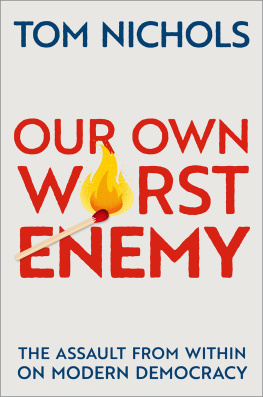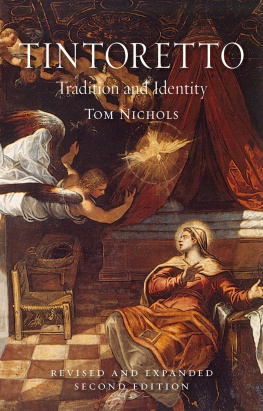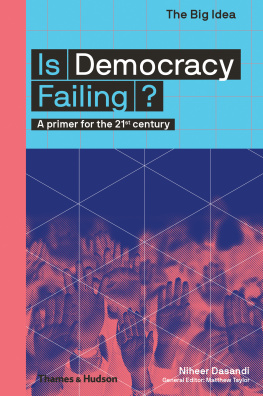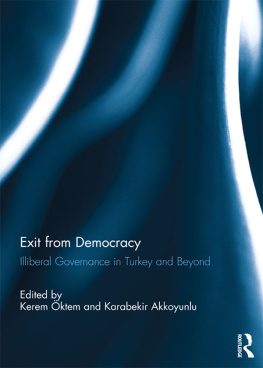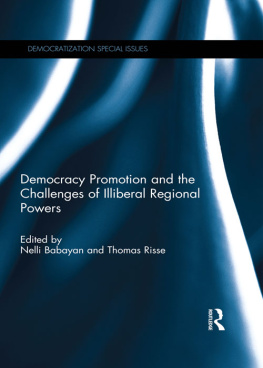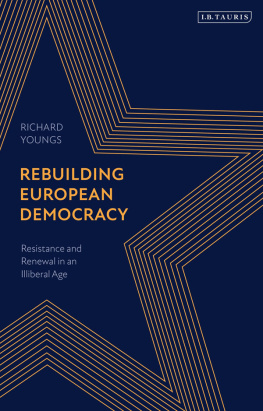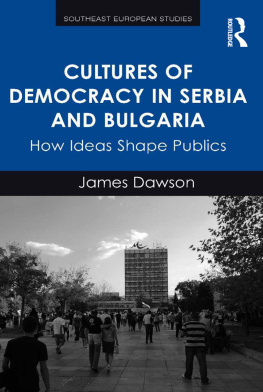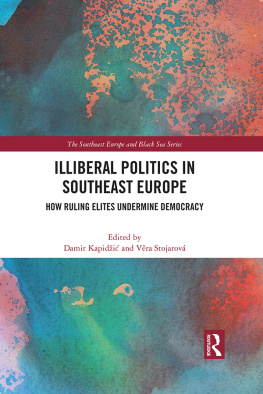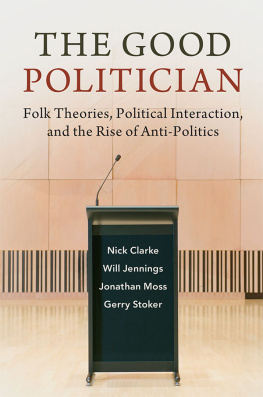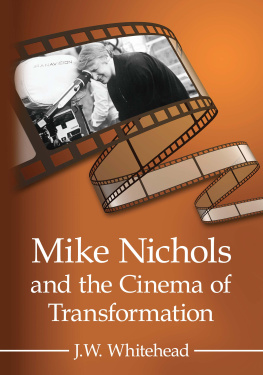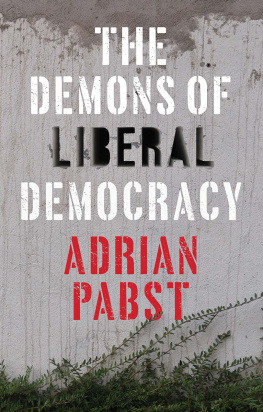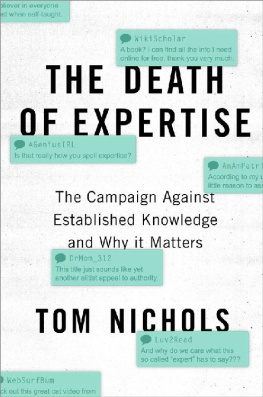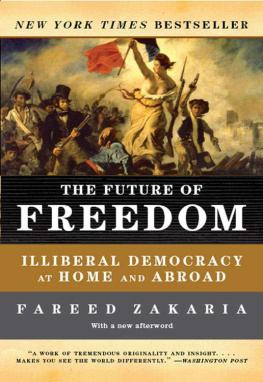Advance Praise for Our Own Worst Enemy
Taking freedom and democracy for granted is a fatal mistake. Our Own Worst Enemy explains why even the greatest nation on Earth isnt immune to the destructive effects of cynicism and ignorance. It is both a history lesson and a sharp examination of painful recent events. The forces of illiberalism are on the rise, and its not clear that liberal democracy is up to the challenge. This book makes the essential case that ignoring politics is a luxury the citizens of the free world can no longer afford. Being a successful chessplayer requires understanding yourself and your own decision-making process. As Tom Nichols demonstrates in Our Own Worst Enemy, it turns out thats also required to be a successful country. America has enough enemies without turning on itself.
Garry Kasparov,
Chairman of the Renew Democracy Initiative, author of Winter Is Coming: Why Vladimir Putin and the Enemies of the Free World Must Be Stopped, and the former world chess champion
There are few silver linings to the monstrous transformation of the American right: one has been discovering the stalwart minority of decent, intelligent, honest conservatives who fiercely and absolutely reject the party of Trumpsuch as Tom Nichols. Our Own Worst Enemy is his thoughtful and thought-provoking diagnosis of our urgent democratic crises, which provided me the important pleasure of enjoying, learning from, and arguing with it.
Kurt Andersen,
author of Evil Geniuses and Fantasyland

Oxford University Press is a department of the University of Oxford. It furthers the Universitys objective of excellence in research, scholarship, and education by publishing worldwide. Oxford is a registered trade mark of Oxford University Press in the UK and certain other countries.
Published in the United States of America by Oxford University Press
198 Madison Avenue, New York, NY 10016, United States of America.
Oxford University Press 2021
All rights reserved. No part of this publication may be reproduced, stored in a retrieval system, or transmitted, in any form or by any means, without the prior permission in writing of Oxford University Press, or as expressly permitted by law, by license, or under terms agreed with the appropriate reproduction rights organization. Inquiries concerning reproduction outside the scope of the above should be sent to the Rights Department, Oxford University Press, at the address above.
You must not circulate this work in any other form and you must impose this same condition on any acquirer.
Library of Congress Control Number: 2021939765
ISBN 9780197518878
eISBN 9780197518892
For Lynn
Who makes everything possible
Table of Contents
Sometimes, when you present an argument in writing and then talk about it with the public, you come to realize theres an even larger argument lurking beneath it. It comes up even when you think you might be talking about something else. It might not be an argument you wanted to make, and it is often uncomfortable to confront it, but its there. Thats how the book youre now reading came about.
In 2013 I wrote an essay called The Death of Expertise, which a few years later became a popular book with that same title. It was about the disturbing ways in which people reject established knowledge and argue with experts as if they know what theyre talking about. Some of it was, of course, just the usual complaining from intellectuals like me about how people should listen to intellectuals like me. Even as I wrote it, I had the sense that something even more chilling was taking place, and I could tell from the comments from readers and at public discussions and lectures over the years that others had the same fear. Maybe the rejection of knowledge wasnt just about people not knowing very much. Maybe it was just one of many arenas of social conflict threatening to undermine the foundations of civic life in democracies. Maybe it was one of the many accumulating symptoms of the decline of liberal democracy itself.
Everywhere I went, in the United States or abroad, discussions about knowledge and science turned to darker concerns about the survival of democracy, and I was almost always asked the same question: How long can we go on like this? Usually, I answered with what now seems in retrospect to be unwarranted optimism. I told audiences that I was confident that when faced with a major disaster, such as a war, or a depression, or perhaps even a pandemica possibility I raised often while still thinking it unlikelyAmericans would rise to the challenge. This was before COVID-19 had a name.
And while some of these concerns were directly related to the rise of Donald Trump, even there (despite my early and consistent opposition to Trump and his authoritarian political movement), I argued for a calm approach. I reassured audiences and told them to trust in the culture of constitutionalism and the resilience of democratic institutions. I could see that illiberalism was on the rise in other nations, but I held out the hopethe exceptionalist belief, reallythat the United States would hold firm even if other nations wavered.
These assurances about the durability of Western democracy were sincere, but beneath them I also harbored worries that had been growing for some time, many of them before the new wave of authoritarianism in Europe, before the COVID pandemic, before Trumps multiple attacks on democracy and the rule of law, and before his fight to stay in power that culminated in the first successful breach of the U.S. Capitol by hostile forces since 1814. In The Death of Expertise, I wrote that when voters abdicate their responsibilities as citizens, they lose control of important decisions and risk the hijacking of their democracy by ignorant demagogues, or the more quiet and gradual decay of their democratic institutions into authoritarian technocracy. I did not, at the moment I wrote those words, foresee the emergence of any one leader, whether Viktor Orbn in Hungary, Recep Erdoan in Turkey, Narendra Modi in India, Jair Bolsonaro in Brazil, or Trump in the United States. But I had long been worried about the appearance of someone, or something, like all of them.
Some of this anxiety was perhaps just the natural extension of spending too much time observing authoritarian regimes. In my early career, I was a scholar of the old Soviet Union. When you study (and visit) repressive countries, you think hard about what makes your own nation different. You wonder whether the freedoms you cherishthe ability to move about freely, to say what you please, to associate with others at will, to worship if you so chooseare fragile and transitory. Its a fear inherent in every open society, I suppose. This is why we carve inspirational odes to democracy in the stone walls of memorials to Jefferson and Lincoln: they are a tribute to our own doubts, a hope that marble and granite will give permanence to those words and ideals even if we ourselves might not always defend them.
The blossoming of newly free societies at the end of the twentieth century also encouraged me to put away some of my doubts. The collapse of the USSR and the great wave of democratization that followed it in the 1990s was supposedly the third wave of human liberation, after the great social revolutions of the eighteenth century and then the defeat of fascism in the 1940s. Heading into the new century, it seemed that the only question was how fast democracy, in its various iterations, could now spread across the globe. I did not believe that we had solved all of lifes problemsjust one of the biggest facing us at the time. There will always be authoritarian governments as long as there are corrupt and evil human beings, but absent a nightmare like a nuclear war or mass starvation, I was confident that in the postindustrial world, we were no longer arguing over whether liberal democracythe kind based on tolerance, trust, and inalienable human rightswas here to stay. The fall of the authoritarians and the surge of liberal democracy might not be Francis Fukuyamas end of history, but it was progress and it was in the right direction. Maybe wed finally learned our lesson as a species.

